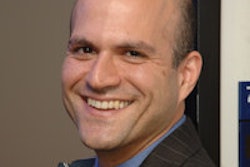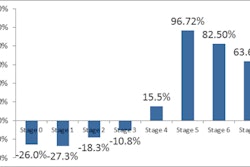Major healthcare organizations think the U.S. government may be moving too fast in its "meaningful use" program to convince healthcare providers to adopt electronic records. The groups are recommending that stage 3 requirements be delayed until the effectiveness of the meaningful use program can be evaluated.
The American Medical Association (AMA), the College of Healthcare Information Management Executives (CHIME), and the Federation of American Hospitals (FAH) were among the organizations that made recommendations in letters submitted on January 14 to the U.S. Centers for Medicare and Medicaid Services (CMS) and to Dr. Farzad Mostashari, head of the Office of the National Coordinator for Health Information Technology (ONC). The letters were in response to a November 2012 request by the ONC's Health IT Policy Committee for comments on its proposed stage 3 meaningful use requirements.
In addition to commenting on specific proposed requirements, they generally asked ONC to slow down the introduction of stage 3 requirements. The groups advised the agency to hire an independent evaluator to determine what's working and what's not in at least stage 1, with time to make necessary modifications. Only then should ONC move on to planning stage 3 requirements.
AMA
In its comments, AMA noted that the meaningful use program is still in an early phase due to technological, financial, operational, and regulatory challenges. The organization believes that these challenges must be overcome to increase physician participation. AMA expressed "extreme concern" with ONC's decision to move full-speed ahead in proposing stage 3 requirements without reviewing existing flaws in the meaningful use program, as well as problems with the health IT infrastructure in the U.S.
In a 20-page letter dated January 14, AMA CEO Dr. James Madara recommended that ONC postpone developing stage 3 requirements so that achievements could be assessed, problems could be identified and resolved, and "a nationwide interoperable network [could be] fully developed and meaningfully operating."
A key concern of AMA members is that 100% adoption of measures is mandated to receive financial incentive payments and to avoid financial penalties in 2015; they feel this is too inflexible and unrealistic.
Echoing members of the American College of Radiology and other medical specialty organizations, AMA members also do not feel that the "one-size-fits-all" approach of the ONC is appropriate. In addition, members are having difficulty using certified software, whether complete electronic health record (EHR) systems or EHR modules.
The process of sharing patient data electronically is an excellent objective, but the health IT infrastructure that exists in the U.S. is impeding this process, AMA also noted. The organization said that improving this infrastructure to allow physicians to exchange patient data readily and securely with other healthcare providers should be a top priority, and that this effort should take precedence over developing future stages of the meaningful use program.
Finally, AMA pointed out that neither CMS nor ONC has evaluated the meaningful use program as implemented to date. The organization recommended an independent evaluation.
CHIME
CHIME's 1,450 members comprise the front line of EHR implementation, representing chief information officers and healthcare IT senior executives working in U.S. hospitals.
Like AMA, CHIME expressed the difficulty of making intelligent recommendations about proposed stage 3 meaningful use requirements with only little (stage 1) or no (stage 2) information about the successes and/or problems so far associated with implementing these requirements.
"We see no value in setting unrealistic performance thresholds or expectations before current evaluations of what we have accomplished have been undertaken," wrote Richard Correll, president and CEO of the group, in a letter.
The organization does not believe that every desirable EHR-related objective can be met by 2016. Nor does CHIME see any value in attempting a rushed adoption of various EHR uses within that time frame.
CHIME also expressed concern about the costs to hospitals of supporting each successive stage of meaningful use, particularly with respect to upgrades. The group noted that as costs increase for providers, federal financial incentive payments are structured to decline.
"This dynamic makes participation in subsequent stages less and less palatable for providers, jeopardizing the fundamental aim of bringing the nation's healthcare system into the 21st century," the letter stated.
Additionally, CHIME expressed concern over what it identified as growing turmoil regarding vendors. As hospitals or healthcare professionals progress from stage to stage, they often have little choice but to transition from one vendor's product to another. These transitions are costly and challenging, the organization noted, requesting that action be taken to accommodate these situations. CHIME also expressed concern about audits, stating that the federal government should focus on fraudulent activities rather than honest mistakes.
FAH
FAH's comments to the ONC were similar to those made by AMA and CHIME. Its more than 1,000 members, representing investor owned or managed community hospitals and health systems, are concerned about the financial investment needed to meet proposed stage 3 requirements.
The organization also suggested that ONC was moving too fast, with no evaluation of the stage 1 and 2 implementations.
"Providers are almost focused solely on being compliant with requirements, rather than optimizing the technology that has already been implemented," wrote Chip Kahn, FAH's president and CEO. The organization suggested that ONC expand the current two-year cycle for implementing each stage of meaningful use to a three-year cycle.
Are the ONC requirements achieving their objectives? FAH thinks not. "The current stage 1 quality measures are largely retooled, chart-abstracted measures," it stated.



















